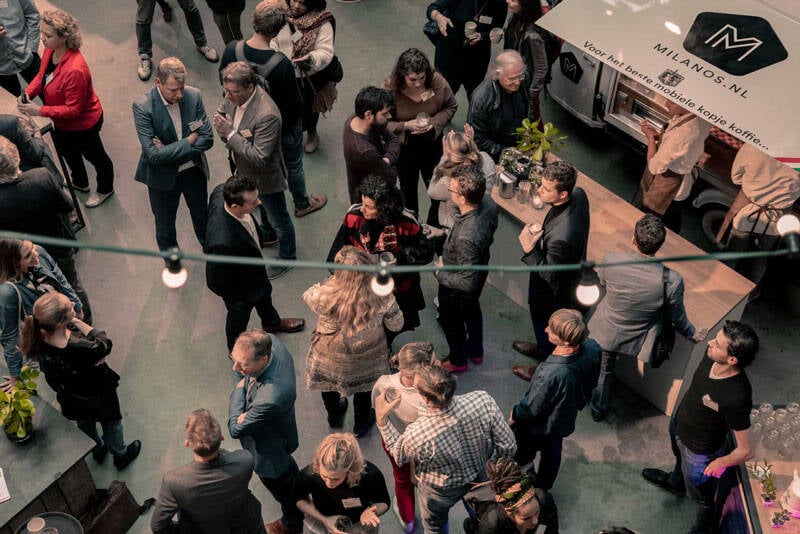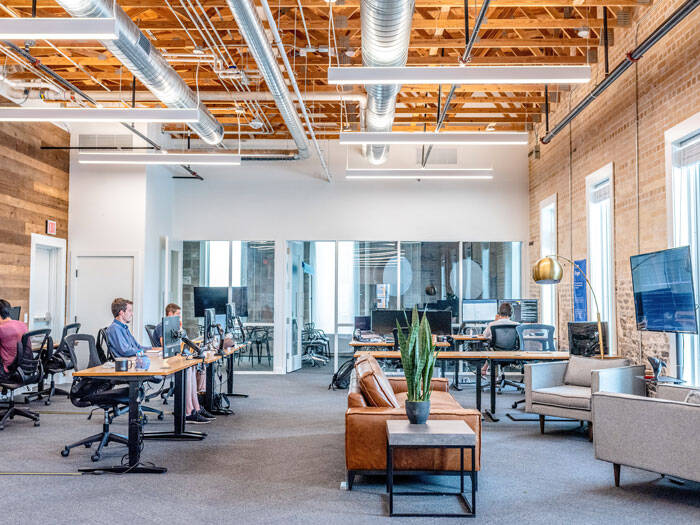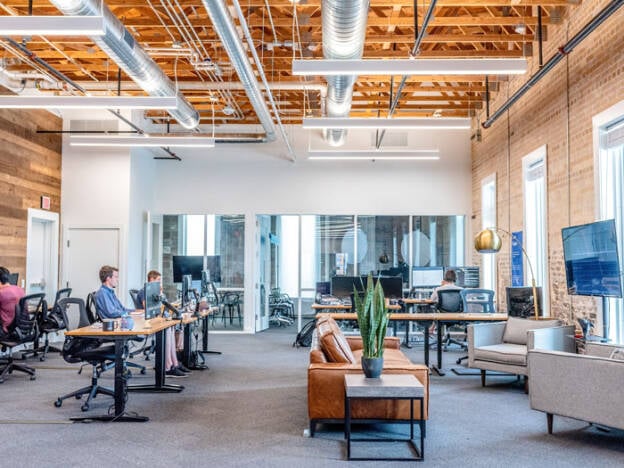Reinventing the office
The recognition of human needs does not mean employers cannot change anything, on the contrary. Braun hopes that companies use this period to redefine what’s really important to them. “The pandemic created a so-called liminal period, the period in between the ‘old and the new normal’. People are more flexible than they normally are, which makes it easier to implement changes.” Braun further emphasizes the importance of a ritual that signifies the end of the liminal period and the start of the new ‘normal’, e.g. a kick-off or party.

A company party to celebrate the end of the pandemic has the same significance as prom after high school or Chinese New Year. It eases transition for people.
Since people spend a major part of their time at work, it makes sense that all these basic human needs are also fulfilled at work. According to Braun, there are ways to do this while working from home, but it makes sense that all this is easier face to face. It’s quite natural to flirt at the coffee machine, or boast about a successful project while eating lunch. Via video calls, not so much.
One might wonder why employers are the ones responsible to accommodate these human needs. Braun: “We’ve learned that we have a need for human contact. Organisations that are able to facilitate contact, to play into human behaviour, are able to attract the most talented employees and help their customers best.”
That likes to flirt and fall in love. It might be frowned upon, but according to Brown, 60% of all marriages are the result of work related connections.
Homo eroticus
That wants to know their position in relation to others and likes to vie for promotions.
Homo hierarchicus
That likes having fun and making connections with other people.
Homo ludens
That likes being creative and making things they are proud of
Homo faber
The men we are
In anthropological terms, man is not only homo economicus, the hard working employee, but also:

Braun: “These days it’s often said that people are overstimulated, by the corporate pressure and screen time. That may be true, but I’d say that people are understimulated: socially understimulated.” It may not be a message management wants to hear, but Braun regards working and earning money as just one of the many aspects of being an employee.
Danielle Braun is a corporate anthropologist. She regards companies as tribes and tries to help improve them from that point of view: the CEO as chief, the Christmas party as ritual, the home office as the nomads tent. Braun combines 25 years of experience as a corporate manager and extensive travels of anthropological study. Her motto: attention is the new gold.
The unexpected success of working from home these last few months raised a question about offices: do they and all its services have much value? Danielle Braun, anthropologist, answers that question with a resounding yes. A fundamentally human value.
Jurgen Elenbaas Xiao Er Kong
Insights about reinventing the office culture of anthropologist Danielle Braun
The fundamental need to an office
expert opinion
3 min
Danielle Braun

the fundamental need to an office




Reinventing the office
The recognition of human needs does not mean employers cannot change anything, on the contrary. Braun hopes that companies use this period to redefine what’s really important to them. “The pandemic created a so-called liminal period, the period in between the ‘old and the new normal’. People are more flexible than they normally are, which makes it easier to implement changes.” Braun further emphasizes the importance of a ritual that signifies the end of the liminal period and the start of the new ‘normal’, e.g. a kick-off or party.

A company party to celebrate the end of the pandemic has the same significance as prom after high school or Chinese New Year. It eases transition for people.

Since people spend a major part of their time at work, it makes sense that all these basic human needs are also fulfilled at work. According to Braun, there are ways to do this while working from home, but it makes sense that all this is easier face to face. It’s quite natural to flirt at the coffee machine, or boast about a successful project while eating lunch. Via video calls, not so much.
One might wonder why employers are the ones responsible to accommodate these human needs. Braun: “We’ve learned that we have a need for human contact. Organisations that are able to facilitate contact, to play into human behaviour, are able to attract the most talented employees and help their customers best.”
That likes to flirt and fall in love. It might be frowned upon, but according to Brown, 60% of all marriages are the result of work related connections.
Homo eroticus
That wants to know their position in relation to others and likes to vie for promotions.
Homo hierarchicus
That likes having fun and making connections with other people.
Homo ludens
That likes being creative and making things they are proud of
Homo faber
The men we are
In anthropological terms, man is not only homo economicus, the hard working employee, but also:



Braun: “These days it’s often said that people are overstimulated, by the corporate pressure and screen time. That may be true, but I’d say that people are understimulated: socially understimulated.” It may not be a message management wants to hear, but Braun regards working and earning money as just one of the many aspects of being an employee.
Danielle Braun is a corporate anthropologist. She regards companies as tribes and tries to help improve them from that point of view: the CEO as chief, the Christmas party as ritual, the home office as the nomads tent. Braun combines 25 years of experience as a corporate manager and extensive travels of anthropological study. Her motto: attention is the new gold.
The unexpected success of working from home these last few months raised a question about offices: do they and all its services have much value? Danielle Braun, anthropologist, answers that question with a resounding yes. A fundamentally human value.
Jurgen Elenbaas Xiao Er Kong
Insights about reinventing the office culture of anthropologist Danielle Braun
The fundamental need to an office

3 min
Danielle Braun










